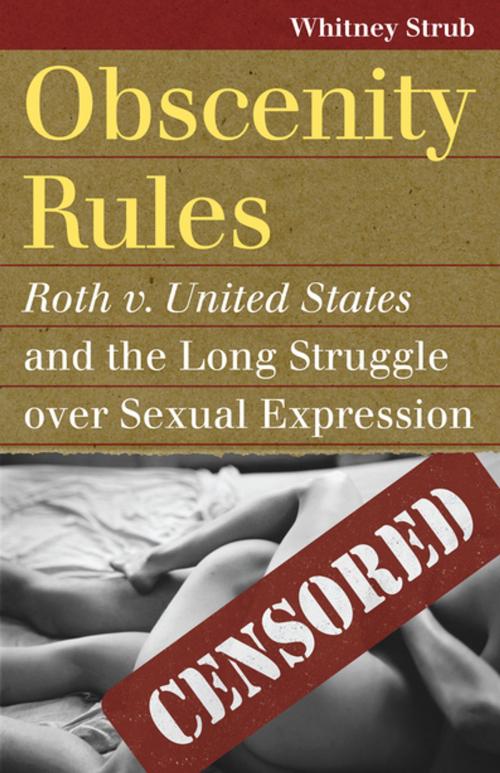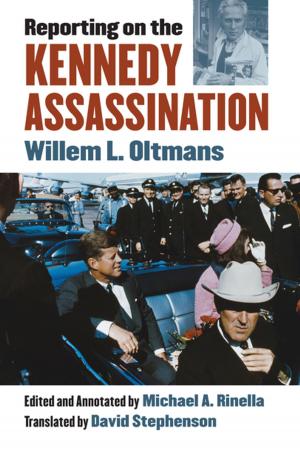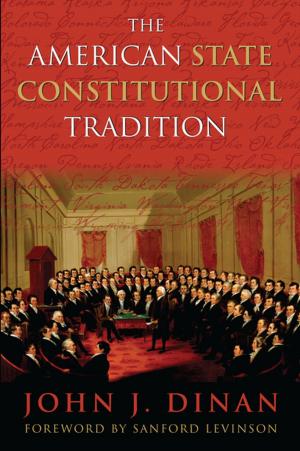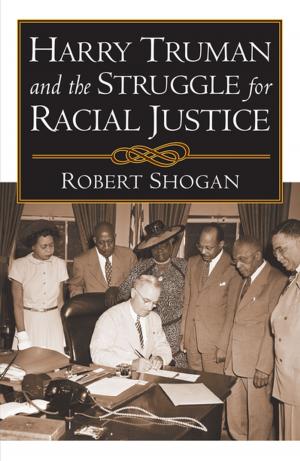Obscenity Rules
Roth v. United States and the Long Struggle over Sexual Expression
Nonfiction, Reference & Language, Law, Legal History, Constitutional, Social & Cultural Studies, Political Science| Author: | Whitney Strub | ISBN: | 9780700619757 |
| Publisher: | University Press of Kansas | Publication: | April 11, 2014 |
| Imprint: | University Press of Kansas | Language: | English |
| Author: | Whitney Strub |
| ISBN: | 9780700619757 |
| Publisher: | University Press of Kansas |
| Publication: | April 11, 2014 |
| Imprint: | University Press of Kansas |
| Language: | English |
For some, he was "America's leading smut king," hauled into court repeatedly over thirty years for peddling obscene publications through the mail. But when Samuel Roth appealed a 1956 conviction, he forced the Supreme Court to finally come to grips with a problem that had plagued both American society and constitutional law for longer than he had been in business. For while the facts of Roth v. United States were unexceptional, its constitutional issues would define the relationship of obscenity to the First Amendment.
The Supreme Court's 6-3 decision in Roth for the first time tried to definitively rule on the issue of obscenity in American life and law—and failed. In this first book-length examination of the case, Whitney Strub lays out the history of obscenity's meaning as a legal concept, highlights the influence of antivice crusaders like Anthony Comstock and John Sumner, and chronicles the shadowy career that led Roth to spend nearly a decade of his life imprisoned for the allegedly obscene materials that he sent through the mails. Strub then unwraps the events that produced Roth v. United States, placing the trial in the context of its times—the Kinsey Reports, the Kefauver hearings, free speech debates—by using Roth's own private papers along with the records of the various prosecutions and the memos of the justices.
The significance of Roth, as Strub reveals, lay in the two faces of Justice William Brennan's majority opinion--which on the one hand reflected the liberalizing attitude toward sexual matters in mid-century America, but on the other kept "obscene" expressions beyond First Amendment protection. Because that ruling points up the contradictions of a society where the prurient and repressive commingle uncomfortably, Strub shows how Roth says much more about American sexual values than Brennan's written words necessarily acknowledged.
In our era of internet pornography and Fifty Shades of Grey, it may be difficult to imagine a time when obscenity was a matter for the courts. As Strub tracks the legacy of Roth and obscenity law through the ongoing policing of acceptable sexuality into the twenty-first century, his riveting narrative brings those times to life and helps readers navigate the fine line between what is socially acceptable and what is criminally obscene.
For some, he was "America's leading smut king," hauled into court repeatedly over thirty years for peddling obscene publications through the mail. But when Samuel Roth appealed a 1956 conviction, he forced the Supreme Court to finally come to grips with a problem that had plagued both American society and constitutional law for longer than he had been in business. For while the facts of Roth v. United States were unexceptional, its constitutional issues would define the relationship of obscenity to the First Amendment.
The Supreme Court's 6-3 decision in Roth for the first time tried to definitively rule on the issue of obscenity in American life and law—and failed. In this first book-length examination of the case, Whitney Strub lays out the history of obscenity's meaning as a legal concept, highlights the influence of antivice crusaders like Anthony Comstock and John Sumner, and chronicles the shadowy career that led Roth to spend nearly a decade of his life imprisoned for the allegedly obscene materials that he sent through the mails. Strub then unwraps the events that produced Roth v. United States, placing the trial in the context of its times—the Kinsey Reports, the Kefauver hearings, free speech debates—by using Roth's own private papers along with the records of the various prosecutions and the memos of the justices.
The significance of Roth, as Strub reveals, lay in the two faces of Justice William Brennan's majority opinion--which on the one hand reflected the liberalizing attitude toward sexual matters in mid-century America, but on the other kept "obscene" expressions beyond First Amendment protection. Because that ruling points up the contradictions of a society where the prurient and repressive commingle uncomfortably, Strub shows how Roth says much more about American sexual values than Brennan's written words necessarily acknowledged.
In our era of internet pornography and Fifty Shades of Grey, it may be difficult to imagine a time when obscenity was a matter for the courts. As Strub tracks the legacy of Roth and obscenity law through the ongoing policing of acceptable sexuality into the twenty-first century, his riveting narrative brings those times to life and helps readers navigate the fine line between what is socially acceptable and what is criminally obscene.















